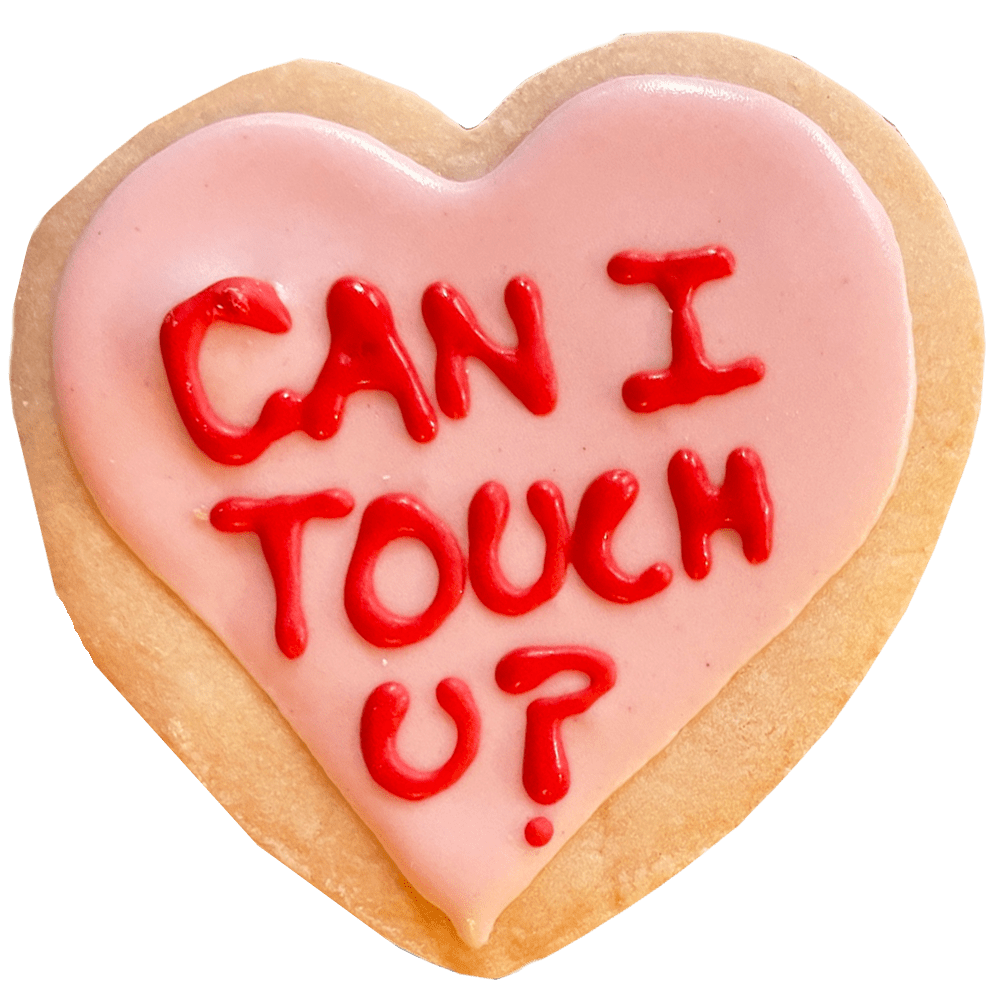Social practice-driven, collaborative, promoting agency and self-empowerment. These are the ways I have described my work in arts education and how I engage with different audiences. I have never rooted my work or described it in relation to an educational theory, but it’s about time that I do.
I am a Brooklyn-based artist, curator, writer, educator, baker, and instigator who has been teaching and writing curricula combining art and social justice by myself and in collaboration with artists and educators since 1999. I have worked for NYC-based art centers, within middle schools and high schools, and taught undergraduates and graduate students for eight years at the New School-Parsons School of Design. I currently have a project called the Sex Ed Bakeshop that is a platform for art projects, workshops, experiences, products and resources to normalize sex education and all things related to sexual health.
As an artist who makes work about sexual health topics, I am inspired by the work of Mierle Ladderman Ukeles and the collective, ACT Up! My practice as an educator is inspired by writer, theorist, and educator, bell hooks, and her call for criticality, the recognition of marginalized people, and social change. I didn’t invent the ways of collaborating and educating that I practice. I am part of a lineage of artists and activists who share knowledge and tools to expand minds about the possibilities for society, with the goals of self-empowerment and social change. I proudly work within the ideologies of Social Reconstructivism and Humanism.
I seek to create fun and creative educational contexts in which I can learn alongside whomever I work. I do not enter educational spaces as ‘the expert.’ I view myself as a part of the learning community while I am privileged enough to be in the position of facilitator. I bring resources, but establish myself as a collaborator, who does not hold all of the information or power. I invite everyone to bring and share what they are seeing, doing, and learning that relates to the content as a way to celebrate individual experiences and generate collective knowledge.

For me, a classroom can take the form of standing in the middle of Union Square in NYC, with a giant inflatable banana as a talking stick, inviting each student to take a turn sharing, as loudly as possible, their manifestos for using creative practice to improve sex ed. With this example, and in general with my teaching, I invoke a Humanist approach leading and modeling by example. On that day in May of 2019 in Union Square, I used the parameters for the classes’ final assignment (design a street-level action with an element of spectacle) to orchestrate our final class for the semester, and I was the first to hold the giant banana and share/shout my manifesto.
I believe personal reflections are excellent starting points for understanding connections to content and ways of contributing to collaborative projects. Additionally, group projects or assignments that include community partnerships with a school-based health center or sexual health clinic, which agree to advise for the course period, ground the work in the reality of real world parameters, while the context of a class or workshop allow for big ideas, idealism, experimentation, creativity, and failure.
In my opinion and experience, educational engagements end best with exclamation points and sharing more broadly the work that was done by a few. It is not unusual for the pinnacle of a workshop that I run to take place on the parade line at the annual Mermaid Parade in Coney Island, NY. During June 2023, I ran a 2-weekend consent and prop-making workshop in which participants collaboratively conceived of and designed bold messages about communication, respect, and the elements of consent (enthusiastic, informed, reversible, and voluntary)–for t-shirts, temporary tattoos, condoms, and parade props. This Humanistic workshop created a context for 30 different people to convene, learn, and create in the ways that made sense for them and celebrated their individual talents. These talents and lessons were then shared in appropriate and playful ways with thousands of parade attendees, with the hope for a ripple effect of communication and changes to thinking about consent.
As an artist and sex educator, I am committed to facilitating learning and making with the tools and languages of the communities with whom I work and collaborate. I seek to create inclusive and accessible learning contexts to ensure that different kinds of learners, individuals, and voices are represented in, and by, the work that I do. While I do not approach each class as a way to “save society from self-destruction,” I do enter each learning space with the hope that the group I am working with gains new knowledge for their toolbox for agency and/or social change. (Schiro, 134) The learning environments I create are hopeful, collaborative spaces where participants are provided tools, time, space, respect, encouragement, critique, and context to safely and bravely practice and hone ideas.
References:
Freire, P. (2017). Pedagogy of the oppressed. Penguin Classics.
hooks, b. (1994). Teaching to transgress: Education as the practice of freedom. Routledge.
Schiro, Michael. (2007). Social Reconstruction Ideology. Sage Publications, 16 (236), 133-173.



